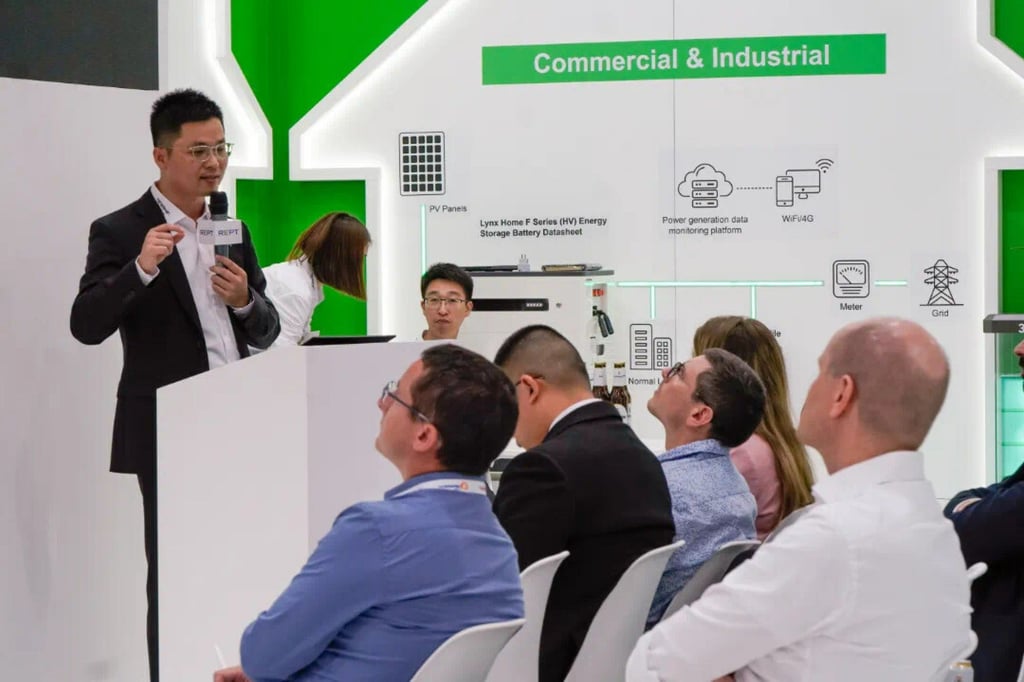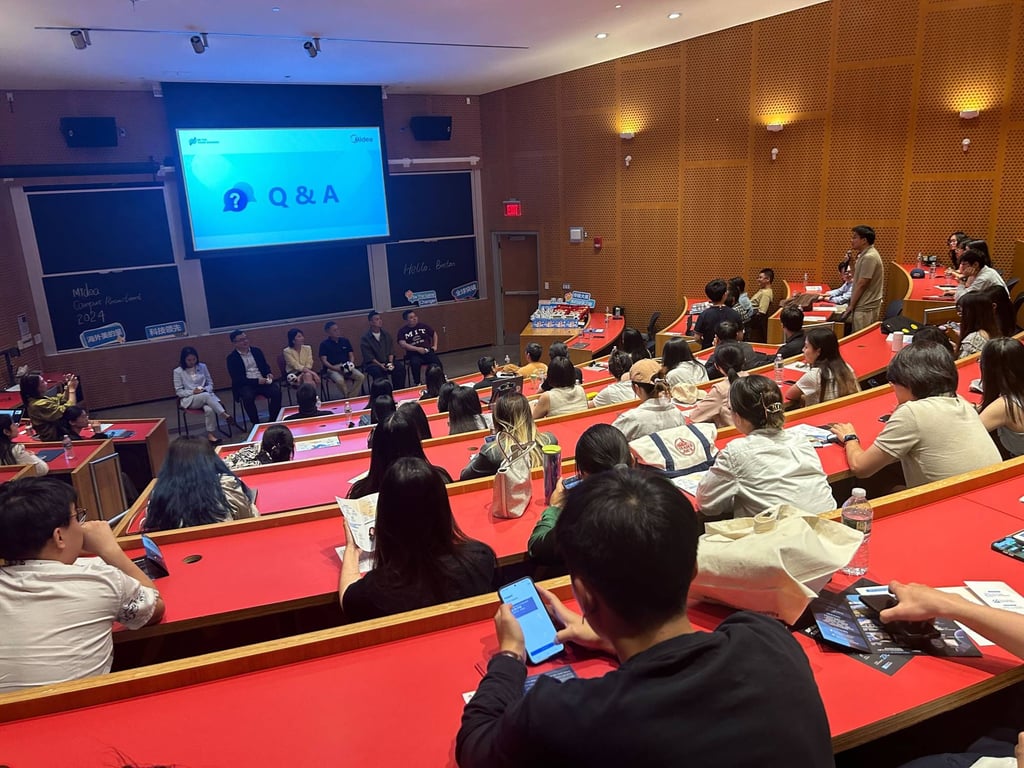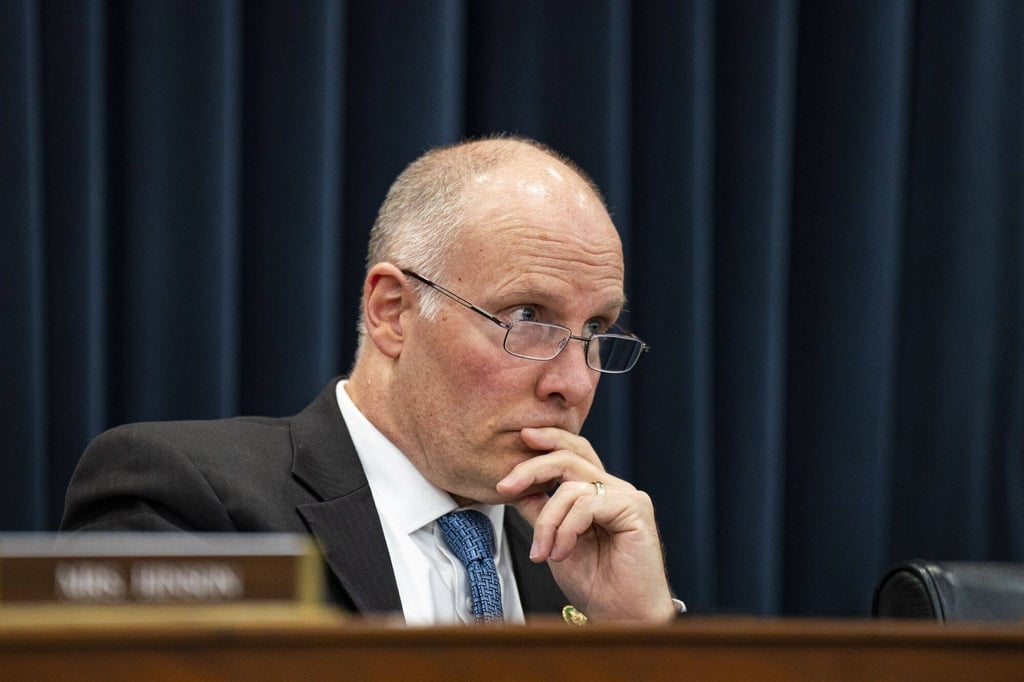Jobs
Hard labour? Chinese firms eyeing US expansion struggle to fill jobs

The question and the challenges it encompasses have vexed countless mainland companies and prospective employees alike.
One Boston University student asked if Midea planned to set up a manufacturing plant in the US given the rising zeal of “Made-in-America” branding.
Another asked how the company protected customers’ personal data or if it planned to build a local data centre. Several said they were looking for jobs in Asia – not stateside.
The concerns loomed “because the US government is always worried that Chinese companies take data from the US and that it’s a safety risk”, explained an attendee who asked not to be named.
Another admitted: “I am seeking a job in Midea working in China because it’s a large company, perhaps because it will be more secure.”
As politicians raise national security fears and accuse Chinese companies of taking American jobs, the stigma has ensnared lower-profile firms.
Apprehensions are increasingly widespread for those seeking to localise operations and lure talent in the US, experts observe, and differences in management style can complicate retention.

However, high production costs leave it reluctant to open factories in North America. That is despite Midea’s US revenue surging from under US$100 million in 2015 to over US$1 billion in 2021, according to a 2022 Forbes interview with Kurt Jovais, the firm’s then president of American operations. Its global revenue totalled about US$53 billion in 2023.
In 2022, some 173 staff worked at Midea’s New Jersey headquarters and plans are afoot to grow that figure next year by 20 per cent. Last month, the company announced its R&D facility in Kentucky would expand with 110 new jobs “over the coming years”.
Globally, Midea has more than 30 R&D centres. Yet a representative, speaking on the condition of anonymity, called attracting top talent in the US its “biggest bottleneck”.
“When you’re localising staff, there’s going to be challenges, whether you’re famous or not,” the company representative said, adding that the strategy was to “localise as much as possible” and offer more salary and opportunities “than average”.
Midea is not alone among Chinese firms confronting steep hurdles to US expansion.
A senior official at REPT Battero, a mainland renewable battery maker whose American operations commenced in 2022, said its hiring was sluggish.
“We have 10 local people in the US and we are planning to increase our team to 25 to 30, but it’s very difficult,” said Jason Hong, the company’s US general manager.

Having looked “for several months”, Hong voiced frustration over the time needed to interview candidates, saying recruitment agencies were expensive.
In response, REPT’s US-based sales and technical roles now require fewer years of prior work experience.
Chris Pereira of iMpact, a New York-based consultancy, believed professional hazards befell American applicants, especially “if it’s a government relations role or a public affairs role”.
“There could be some reputational risk or even legislative risk in the future if you’re working for a Chinese company,” Pereira said.
Julian Ha of Heidrick & Struggles, a Washington-based executive recruiter, attested to a shift in sentiment from “10 to 15 years ago”.
Before, “executives would reach out to us”, Ha said. “That’s certainly not the case any more. It’s we who actually have to really actively recruit people.”

Isaac Stone Fish of Strategy Risks, a company that analyses corporate exposure to China, contended Americans contemplating such employment must consider risks like sanctions, legal issues and reputational damage.
“The negative press some US government officials have received because they had previously lobbied or advocated for Chinese companies certainly discourages others to follow in their path,” he said.
A China General Chamber of Commerce survey this year of some 100 mainland enterprises in the US found more than 90 per cent viewed “stalemate” in Sino-American political and cultural relations as a challenge of doing business stateside.
As for TikTok, reports in May emerged that the social media platform boasting more than 1 billion monthly active users worldwide would lay off about 1,000 employees globally. The company last year disclosed it had 7,000 employees in the US alone.
Weeks later, then-TikTok CEO Kevin Mayer resigned just months into his job, citing pressure from the Trump administration.
Amid such developments, some executives at American subsidiaries of Chinese companies have reported encountering harassment.
Chuck Thelen, a North America-based vice-president for mainland battery maker Gotion High-Tech, said he has “personally experienced a great deal of bullying from a number of people”.
US congressman John Moolenaar, a Michigan Republican who chairs the House select committee on China, has dug in.
“We must not welcome companies that are controlled by people who see us as the enemy and we should not allow them to build here,” Moolenaar said in July.
Billboards and yard signs telling Chinese companies they are unwelcome highlight the unease. At a Gotion job fair in Manteno, Illinois in January, a prospective employee told a local newspaper that, while “No Gotion” placards dotted the village, people still needed work to pay their bills.

In the current environment, Ha said uncertainty forced Western executives “to think twice about whether or not they are going to be able to commit and be successful”.
For an American who has a bad experience at one Chinese company, it is “harder for you to decide to join the second”, added Pereira.

Companies such as Midea have taken cues on localisation from successful counterparts in places like close US ally Japan.
“We don’t want to hide who we are,” said the Midea representative when asked about mainland firms trying to distance themselves from their origins.
Management’s approach can shape success, Pereira observed. “Many Chinese companies think if they hire a local person with a local face then that’s localisation.
“What you need to do is give the local staff autonomy to make real decisions, have control of the budget and let them run with their projects and make mistakes even and let them build their own teams,” he said.
“That’s a step that many Chinese companies have trouble with at this stage.”
Citing reviews on websites like Glassdoor, where former employees share feedback on employers, Pereira noted a common complaint was working overtime while getting free pizza on Fridays and nothing more.
“I’m not saying you have to pamper them like babies. But you do have to compare yourself to other local employers if you want to keep the best talent in the United States.”









